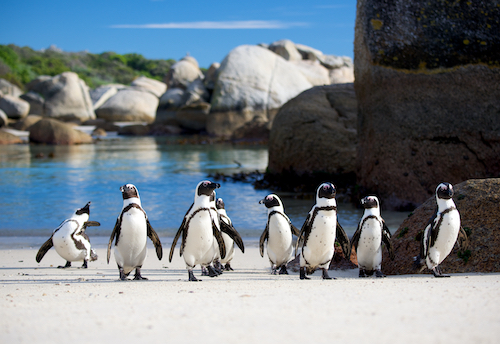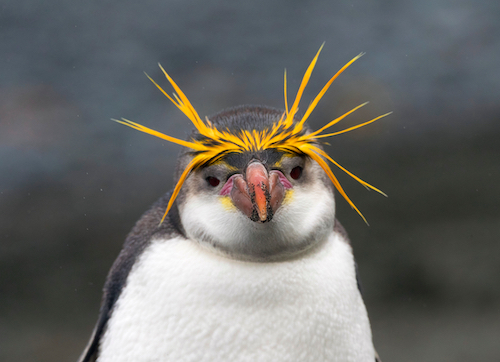Communiqué
A celebration of one of Earth’s most iconic and beloved birds on NATURE: “Penguins: Meet the Family” – December 27 at 8 pm
< < Back to a-celebration-of-one-of-earths-most-iconic-and-beloved-birds-on-nature-penguins-meet-the-family-feb-9-at-8-pmNature – Penguins: Meet the Family
Wednesday, December 27 at 8 p.m. ET on PBS
A unique celebration of one of Earth’s most iconic and beloved birds, featuring all 18 species of penguins for the first time, from New Zealand, Cape Town, the Galapagos Islands and Antarctica. Witness the perils penguins face for survival, from rock climbing to extreme temperatures to predators. Meet the penguins that seem out of place, making their living in dense forests, desert islands and even city streets. Watch how these creatures parent and form lifelong bonds. Discover how scientists identified 37 new colonies of Emperor penguins in Antarctica without even traveling to the continent. Experience penguins’ heart-warming family dynamics, like chicks bonding with their fathers, alongside astonishing adaptations and behaviors unique to these aquatic birds.

Featured Species:
- Snares penguin
- Galapagos penguin
- African penguin
- Adelie penguin
- Northern Rockhopper penguin
- Southern Rockhopper penguin
- Emperor penguin
- Royal penguin
- Humboldt penguin
- Macaroni penguin
- Gentoo penguin
- Fjordland penguin
- Chinstrap penguin
- King penguin
- Little Blue (Fairy) penguin
- Yellow-eyed penguin
- Magellanic penguin
- Erect crested penguin
Buzzworthy Moments:
- The only penguin found north of the equator and in a hot environment, Galapagos penguins adapt by hiding in lava tubes to escape the sun and survive the heat on remote volcanic islands. These covered areas provide the penguins with a cool and dark place to raise their young.
-

Royal penguins live in colonies thousands strong. Emperor penguin chicks stay warm in the bitter cold by nuzzling next to their parents. Parents feed their chicks a fat-dense meal from one beak to the other to help build a layer of blubber, before they take their first steps and waddle away. After taking just a few steps alone, one chick comes running back to the warmth of its father.
- An African penguin sneaks up behind a woman and scares her away. These penguins uniquely live amongst the people in South Africa’s urban environments, huddling together as they cross streets during rush hour traffic to return back to their nest in residential gardens.
- A mother Rockhopper penguin makes a narrow escape from a sea lion in rough seas to get back to land and join her chicks. She uses all her chest and back muscles to navigate the harsh waves and escape the sea lion’s bite before hopping back on rocky land and leading the way back home.

Noteworthy Facts:
- Macaroni penguins have red eyes and are skilled divers that catch prey at depths of 50-230 feet.
- Snares penguins are seabirds that only come to land to breed and molt (shed their feathers).
- Emperor penguins can dive up to 1,850 feet – deeper than any other bird – and stay underwater for more than 20 minutes.
- There is a debate about Rockhopper penguins being one or two species, separating the Northern Rockhoppers from the Southern Rockhoppers.
- Of all penguin species, the Erect-crested penguin is the least known because of their remote location on the South Pacific, making it difficult to monitor and know if the species is endangered.

